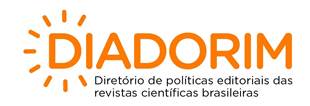The ambiguity and limit of caffeine in migraine: a literature review
Views: 859DOI:
https://doi.org/10.48208/HeadacheMed.2022.Supplement.14Keywords:
Analgesics, Caffeine, Caffeine withdrawal, Medication overuse, MigraineAbstract
Introduction
Migraine is a chronic disease that affects about 15% of world's population. It is the most disabling disease among men and women under 50 years. Studies indicate that the caffeine, which is the most consumed stimulating in the world and present on the daily diet, can be related to the migraine in an ambiguous way.
Objective
Considering the epidemiologic and economic point of view, the disease phisiopatology and the accessibility to caffeine, this study aims to understand if there would be a safe minimum dosage of caffeine for patients with migraine.
Methods
The words "migraine" and "caffeine" were searched in July 2022 at PUBMED and BVS with predetermined filters and selection of publication in qualis journals A1 and A2. 13 articles were found for this revision.
Results
Caffeine's effects on the nervous system and its relation with headaches have been target of several studies, mainly for producing symptoms similars to the prodromic phase of migraine e for the existence of the Caffeine Abstinence Syndrome, known as a diagnostic entity by the International Migraine Classification. The sensory hypersensitivity (migraine's characteristic) does not appear at the abstinence syndrome. The lack of information about pre-existing headache at studies shows a gap in the parameter ''caffeine withdrawal as a trigger per se''. It is possible that premonitory symptoms such as yawns, low energy and sleepiness can lead to caffeine intake, bringing forth the wrong idea that it has initiated the migraine.Caffeine, however, induces urinary magnesium loss, reducing its reabsorption. As magnesium affects neuromuscular conduction, nerve transmission and is beneficial in chronic pain conditions and migraines, caffeine, by decreasing magnesium level, can induce headache. Additionally, caffeine contains thiaminases, enzymes that degrade thiamine, which may have protective potential in migraine. (To see the complete abstract, please, check out the PDF).
Downloads
Downloads
Published
How to Cite
Issue
Section
License
Copyright (c) 2022 Rhayra Alani Villa Deléo , Andressa Eliziário Barroso, Pietra Monique de Souza , Priscila Cristian do Amaral, Andreia Silva de Oliveira

This work is licensed under a Creative Commons Attribution 4.0 International License.












